Most countries continue to increase their military budget and create ever more sophisticated murder weapons. However, some countries refuse to participate in this race. Top 10 most peace-loving countries that have abandoned military conflicts with other countries - in our rating.
10. Iceland
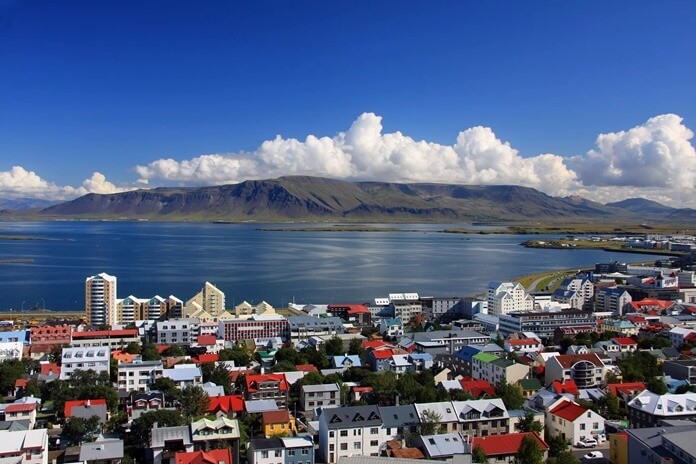 A small island state opens the list of the most non-belligerent countries in the world. And although its history has more than a millennium, it gained independence quite recently - in 1944.
A small island state opens the list of the most non-belligerent countries in the world. And although its history has more than a millennium, it gained independence quite recently - in 1944.
Since then, Iceland has no standing army, navy, or air force. The maximum that Icelanders can afford is the militarized coast guard, which is responsible for protecting the country and sometimes even sending peacekeepers to the points of world conflicts.
Throughout its history as an independent state, Iceland has never participated in a full-scale war, never invaded the territory of another state. Moreover, in the Icelandic constitution there is no article at all about declaring war on another state.
And even those "Cod Wars" when Iceland fought for the right to expand the fishing zone, in fact, were tiny paramilitary trade conflicts on a global scale. The maximum losses for the entire period of the wars were cut trawls and about 55 rams by Icelandic and British ships of each other. During all three "wars" there was not a single human sacrifice. Today Iceland - the safest country in the world.
9. Malta
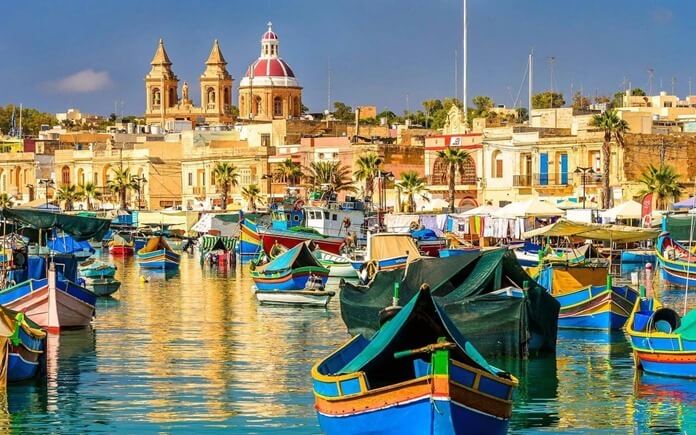 The archipelago on which the state of Malta is located is washed by the warm waters of the Mediterranean Sea. For many years this land was of great strategic importance, as it lay in the center of the sea routes between Europe, Africa and Asia. For centuries, the islands passed from hand to hand, until at the beginning of the 19th century Great Britain took over.
The archipelago on which the state of Malta is located is washed by the warm waters of the Mediterranean Sea. For many years this land was of great strategic importance, as it lay in the center of the sea routes between Europe, Africa and Asia. For centuries, the islands passed from hand to hand, until at the beginning of the 19th century Great Britain took over.
Since then, Malta was "under the Queen's protectorate" until 1964, when she managed to gain independence. And in 1974, the Maltese were able to come to true neutrality by removing all British bases from their territory.
It is not surprising that with such a history (and also given the small population and tiny territory), the Maltese do not want to fight at all. And their air force is primarily engaged in the fight against terrorism, drug trafficking, immigrants and poachers, and also helps to carry out rescue operations at sea.
8. Palau
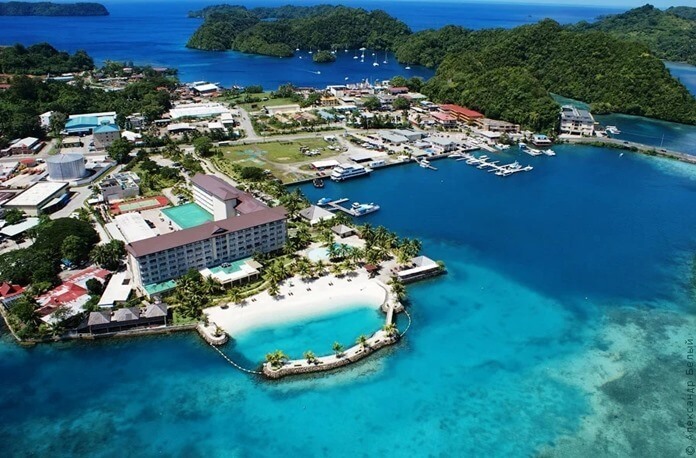 The tiny island nation, lost in the Pacific Ocean, gained independence as recently as 1994. Four years after this date, the Senate decided to transform the state into an offshore financial center, in which state it remains to this day.
The tiny island nation, lost in the Pacific Ocean, gained independence as recently as 1994. Four years after this date, the Senate decided to transform the state into an offshore financial center, in which state it remains to this day.
In addition to commercial affairs, the Palauans also care about the environment, for example, they were the first in the world to create a refuge for sharks, banning them from commercial fishing in the waters belonging to this small state, and also took a number of measures to protect their water resources.
Since its inception, Palau has not fought with anyone and has not yet shown such a desire. And the Palauan Armed Forces is a maritime law enforcement organization with only two patrol boats.
7. Czech Republic and Slovakia
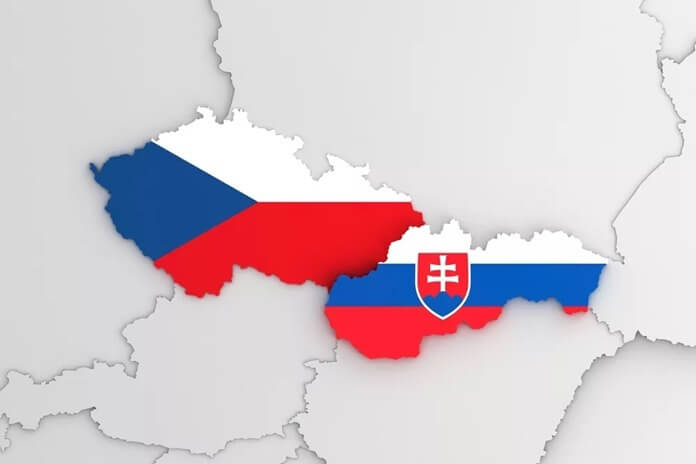 We admit, here we cheated a little and took the date of January 1, 1993 as the countdown.It was then that the former Czechoslovakia was divided into two countries - the Czech Republic and Slovakia. The velvet revolution was followed by the velvet divorce. And although the citizens of both countries expressed regret that their country, which was born after the First World War, ceased to exist, but in general, they have been living well since then.
We admit, here we cheated a little and took the date of January 1, 1993 as the countdown.It was then that the former Czechoslovakia was divided into two countries - the Czech Republic and Slovakia. The velvet revolution was followed by the velvet divorce. And although the citizens of both countries expressed regret that their country, which was born after the First World War, ceased to exist, but in general, they have been living well since then.
Both countries became members of the European Union (and Slovakia even switched to the euro), their economies are stable, and they do not want to fight with anyone. Although both countries have armies, and they regularly send their soldiers to participate in peacekeeping initiatives.
6. Seychelles
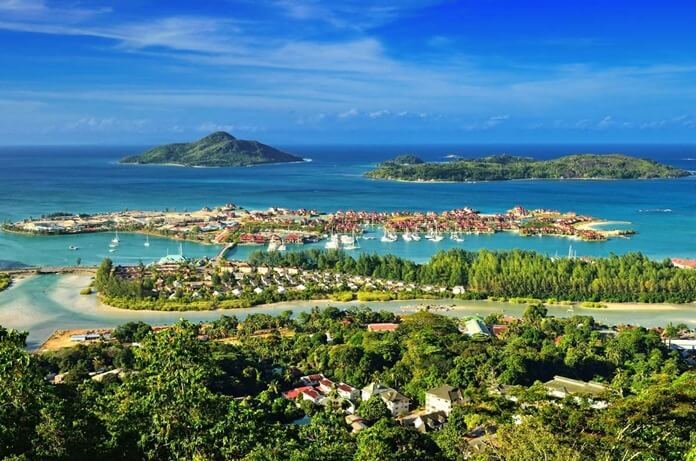 It is a group of islands located off the eastern coast of the African continent. This group includes 115 islands, and only two of them are inhabited. The Republic of Seychelles gained independence in 1976 and since then has not participated in military conflicts with other countries (although it had an abundance of internal conflicts - neighboring states did not hesitate to send detachments of mercenaries to influence the balance of political forces in the country).
It is a group of islands located off the eastern coast of the African continent. This group includes 115 islands, and only two of them are inhabited. The Republic of Seychelles gained independence in 1976 and since then has not participated in military conflicts with other countries (although it had an abundance of internal conflicts - neighboring states did not hesitate to send detachments of mercenaries to influence the balance of political forces in the country).
Now the young island nation is more worried about the problem of piracy. Seychelles loses 4% of its GDP every year due to poaching by Somali fishermen and mercenaries.
5. Vatican
 In its current form the smallest state of the Vatican was born in 1929 and since then has remained neutral. True, since its territory borders on Italy on all sides, it falls under the protection of the Italian armed forces, even despite the absence of an official agreement on defense.
In its current form the smallest state of the Vatican was born in 1929 and since then has remained neutral. True, since its territory borders on Italy on all sides, it falls under the protection of the Italian armed forces, even despite the absence of an official agreement on defense.
The papal state does not have its own armed forces, although there is the so-called "Swiss Guard" - a small unit of military personnel who are responsible for the personal safety of the Pope and the few inhabitants of the state. The number of guardsmen is now about 150 people. It is not so easy to get into their ranks:
- the guards must be men
- catholics,
- unmarried
- impeccable behavior (moreover, documented),
- aged from 19 to 30 years,
- and a height of at least 175 cm.
4. Vanuatu
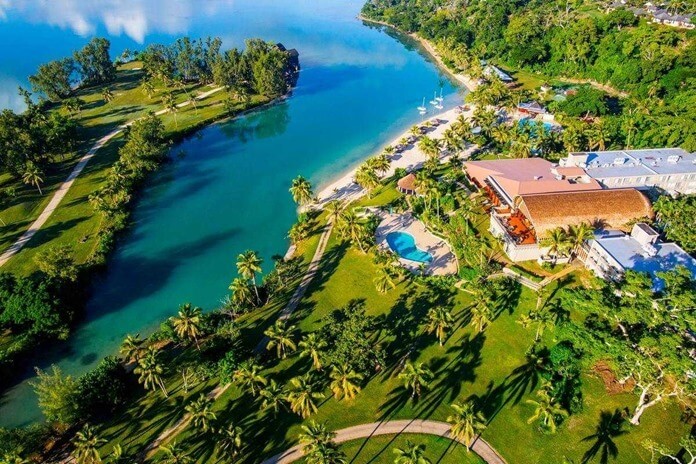 This small island nation is located in the warm waters of the Pacific Ocean. It is known primarily to tourists for its beautiful beaches and general relaxed resort atmosphere. It is difficult to imagine that anyone would dare to leave these heavenly places to participate in hostilities. So Vanuatans don't want to.
This small island nation is located in the warm waters of the Pacific Ocean. It is known primarily to tourists for its beautiful beaches and general relaxed resort atmosphere. It is difficult to imagine that anyone would dare to leave these heavenly places to participate in hostilities. So Vanuatans don't want to.
For many years Vanuatu has been an exceptionally peaceful country. True, during the Second World War, US military bases were located on the territory of the state, but none of the islands was directly attacked. The last military conflict in which the Vanuatans took part was the Coconut Civil War, which lasted only a few weeks in 1980 and led to the proclamation of Vanuatu's independence.
3. Costa Rica
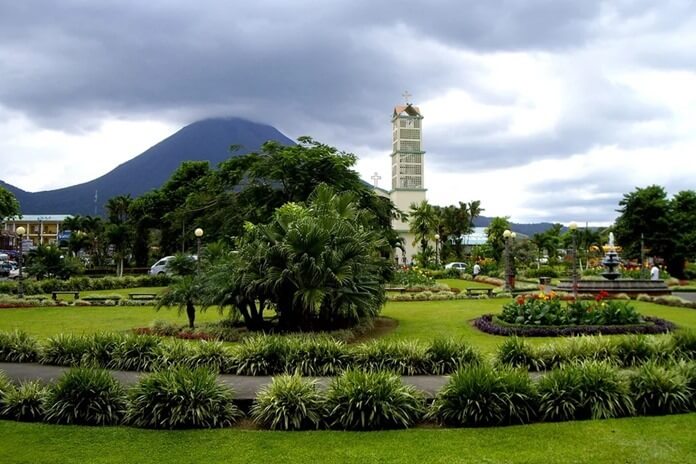 Surprisingly, the list of countries that have not fought with others includes one of the states of Central America, which has never been distinguished by a calm disposition. But Costa Ricans do not like violence so much that they explicitly prescribed a ban on the formation of a standing army in the country's constitution. The UN was so impressed by the country's craving for peace that it even established the University of Peace in Ciudad Colon.
Surprisingly, the list of countries that have not fought with others includes one of the states of Central America, which has never been distinguished by a calm disposition. But Costa Ricans do not like violence so much that they explicitly prescribed a ban on the formation of a standing army in the country's constitution. The UN was so impressed by the country's craving for peace that it even established the University of Peace in Ciudad Colon.
True, evil tongues argue that in fact the reason is not the country's special peacefulness, but the protectorate of the United States. Why spend money on troops when your big brother is always ready to help?
The last military conflict in which Costa Ricans participated was in the middle of the last century. Then the civil war claimed the lives of about 2,000 people.
2. Liechtenstein
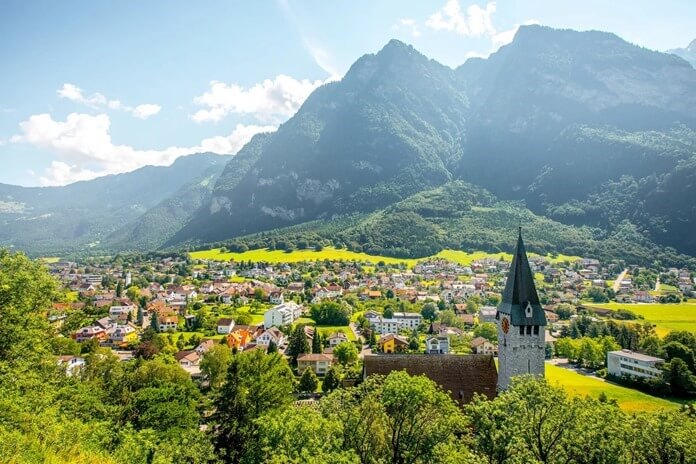 Peace in Liechtenstein is taken so seriously that the citizens of this country decided not to have an army at all and sent their soldiers home. This happened in 1868, and the justification was the cost of the armed forces (the banker state decided not to spend money on saber rattling).
Peace in Liechtenstein is taken so seriously that the citizens of this country decided not to have an army at all and sent their soldiers home. This happened in 1868, and the justification was the cost of the armed forces (the banker state decided not to spend money on saber rattling).
Since then, Liechtenstein has never participated in hostilities. Even if the battles between other countries took place in the immediate vicinity of the borders of this small state - as during the First and Second World Wars.
1. Switzerland
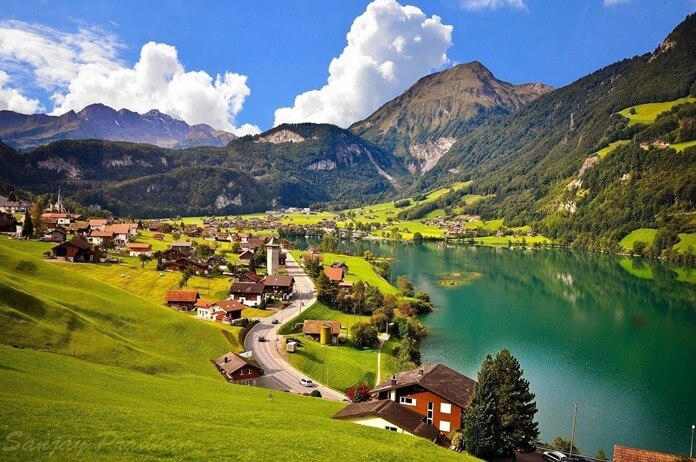 Switzerland was neutral since 1815. And although two world wars raged directly on the borders of this small state, Switzerland did not send troops anywhere.
Switzerland was neutral since 1815. And although two world wars raged directly on the borders of this small state, Switzerland did not send troops anywhere.
The last military conflict in which the Swiss military took part was the civil Sonderburg war in the middle of the 19th century, caused by contradictions between the Catholic and Protestant parts of the population. By today's standards, the scale of hostilities and losses among the troops were very small (less than 150 people died, about 500 were injured).
"If you want peace, prepare for war." Despite all their peacefulness, the Swiss took this saying to heart. The country has one of the highest rates in terms of the number of people who own weapons, and not in Europe, but in the whole world. Believe it or not, there are now about 2-3 million weapons in circulation in Switzerland. This means that for every 100 residents there are 29 pieces! In terms of this indicator, Switzerland is second only to the United States and Yemen.
And if we add to the number of weapons the obligation to serve in the army for any man who has entered the draft age (women can refuse), it becomes clear that Switzerland will not give up its neutrality so easily.

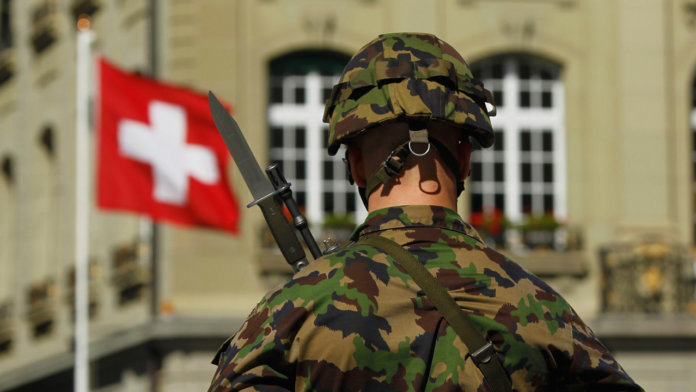
Where is Seychelles located? Off the "western (?) Coast of Africa", right?
Thanks for the comment, corrected;)
the Swiss fought the Austrians in the 15th century, Liechtenstein also took part in the wars. Malta - war with Napoleon
Now in Switzerland are those who incite World War III, schizophrenics hope to sit out in the Alps in bunkers, but they will not work.
Have you forgotten that Slovakia was an ally of Germany and fought against the USSR? Did the Czech Republic produce weapons for the Wehrmacht throughout the war, which killed our soldiers?
Well, then they were protectorates of the Third Reich, but here it is meant as an INDEPENDENT state.
Vatican - Crusades
Iceland - cod wars
In Switzerland, the money of everyone who fought. This is the world's safe. There is an agreement.
still ahead